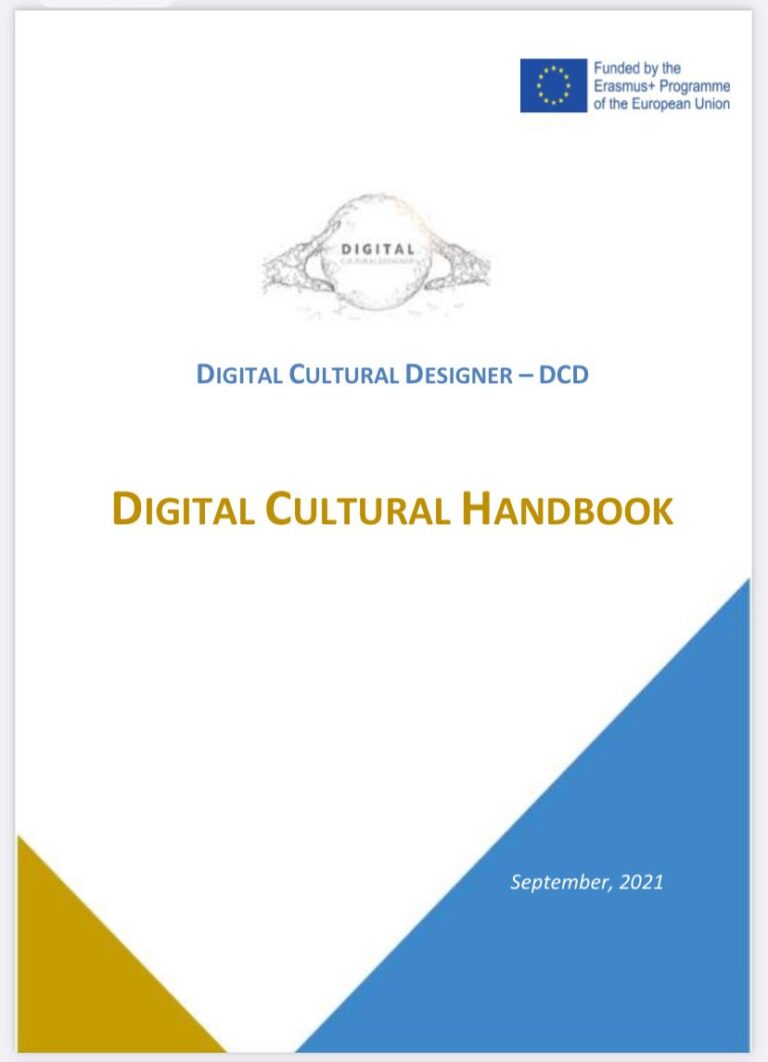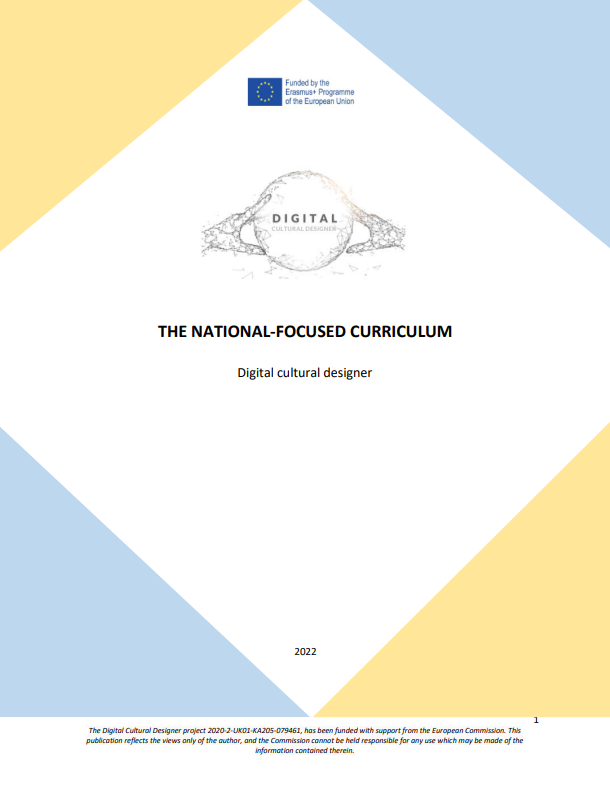OUTPUTS
KA205 - Strategic Partnerships for youth
DCD project will manage to develop innovative tools and methodology for young people to improve their digital competences and skills addressing also cultural needs of local communities. The project’s expected results are the following:
– Creation of a Handbook for Digital Cultural Youth Awareness to use in cultural contexts and organizations this will include: examples, practices, experiences, witnesses, storytelling materials and interviews (IO1)
– Digital Cultural Youth Curriculum (IO2)

This Cultural Digital Handbook aims to help you understand and learn the
concepts of digital culture, linked open data, how they have changed during the decades, how young people are affected and what are the most requisite jobs nowadays and in the feature. You will be also able to learn examples of existing organisations and institutions implementing digital culture among European countries. Psychology also plays an important role in your professional life, so you can learn what the passive and negative effects of art and technology-based jobs are and which ways can be effective in order to enhance your digital awareness.
Last but not least, a list of tools and resources are provided to facilitate this
process, along with country-based research of these concepts in the UK, Cyprus, Italy, Slovenia, Lithuania and Iceland.
Digital culture and digital cultural experiences are already a reality that is becoming familiar to many people around the world. However, there is a lack of knowledge and skills both in creating digital experiences and in integrating them into society and using them responsibly. The national focused digital cultural curriculum responds to the current need to understand the opportunities and challenges of LOD, digital culture and digital media.
This curriculum is primarily intended for museums, archives, libraries, and other cultural institutions. Both for those who maintain a quality digital culture and those who are still learning to open their treasures to consumers.
The purposes:
• To increase knowledge and abilities in using LOD for improvisation and innovation in
cultural services and experiences.
• To enhance of the cultural heritage as open digital educational materials and tools.
• To set up, arrange and organise data using open resources and materials, with particular
attention to museums, libraries, and archives.
• To set up multidisciplinary groups for organising, managing art-based training and
educational activities.
